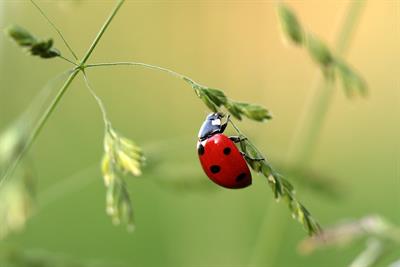
PUMPA - SMART LEARNING
எங்கள் ஆசிரியர்களுடன் 1-ஆன்-1 ஆலோசனை நேரத்தைப் பெறுங்கள். டாப்பர் ஆவதற்கு நாங்கள் பயிற்சி அளிப்போம்
Book Free Demo Then in the seventh grade he got a hint of what real science is when he entered a county science fair — and lost. “It was really a sad feeling to sit there and not get anything while everybody else had won something,” Ebright said. His entry was slides of frog tissues, which he showed under a microscope. He realised the winners had tried to do real experiments, not simply make a neat display.
Already the competitive spirit that drives Richard Ebright was appearing. “I knew that for the next year’s fair I would have to do a real experiment,” he said. “The subject I knew most about was the insect work I’d been doing in the past several years.”
So he wrote to Dr Urquhart for ideas, and back came a stack of suggestions for experiments. Those kept Ebright busy all through high school and led to prize projects in county and international science fairs.
For his eighth grade project, Ebright tried to find the cause of a viral disease that kills nearly all monarch caterpillars every few years. Ebright thought the disease might be carried by a beetle. He tried raising caterpillars in the presence of beetles. “I didn’t get any real results,” he said. “But I went ahead and showed that I had tried the experiment. This time I won.”
Explanation:
When Ebright was in seventh class, he came to know a hint of what real science was. He came to know when he entered and failed at a county science fair. The fair demonstrates an annual setting for middle and high school students to compete for medals, special honours, and scholarships by demonstrating their investigative abilities and creativity.
While losing in the county science fair, watching everyone else win something while he went home empty-handed was unpleasant. While everyone was exhibiting their different set of projects, Ebright showcased the frog tissue slides under a microscope. When he failed in the fair, he realised the winners had attempted serious research rather than merely putting together a good presentation.
While Ebright examined the success of others, he had already begun to cultivate a competitive mentality inside him. He had now resolved to work on a real experiment for the following year's exhibition. He then said that the subject he knew most about was insects because he had been studying them for quite some time. As a result, he wrote to Dr. Urquhart for ideas and sent back a lot of ideas for his next year's project. He remained busy with those ideas throughout his high school and won many prizes in the county fair and international science fairs.
Ebright attempted to discover the origin of a viral sickness that killed virtually all monarch caterpillars every few years while in eighth grade. Ebright suspected that beetles spread the illness, so he cultivated caterpillars in a beetle-infested environment. It was pointless, but he gained credit for his research by demonstrating that he had performed such an experiment.
While Ebright examined the success of others, he had already begun to cultivate a competitive mentality inside him. He had now resolved to work on a real experiment for the following year's exhibition. He then said that the subject he knew most about was insects because he had been studying them for quite some time. As a result, he wrote to Dr. Urquhart for ideas and sent back a lot of ideas for his next year's project. He remained busy with those ideas throughout his high school and won many prizes in the county fair and international science fairs.
Ebright attempted to discover the origin of a viral sickness that killed virtually all monarch caterpillars every few years while in eighth grade. Ebright suspected that beetles spread the illness, so he cultivated caterpillars in a beetle-infested environment. It was pointless, but he gained credit for his research by demonstrating that he had performed such an experiment.

Ebright's prediction of beetle spreading illness
Meanings of the difficult words:
| S.No | Words | Meanings |
1 | Fair | A public event, often held outside, where you could take part in competitions and buy small things and food, often organised to collect money for a particular purpose |
2 | Tissue | A group of connected cells in an animal or plant that are similar to each other have the same purpose and form the stated part of the animal or plant |
3 | Slide | A small piece of glass on which you put something in order to look at it through a microscope |
4 | Microscope | A device that uses lenses to make very small objects look larger so that they can be scientifically examined and studied |
5 | Competitive | Wanting very much to win or be more successful than other people |
6 | Stack | A pile of things arranged one on top of another |
7 | Suggestion | An idea, plan, or action that is suggested or the act of suggesting it |
8 | Experiment | A test is done in order to learn something or to discover if something works or is true |
9 | Insect | A type of very small animal with six legs, a body divided into three parts and usually two pairs of wings, or, more generally, any similar very small animal |
Reference:
National Council of Educational Research and Training (2007). The Making of a Scientist- Robert W. Peterson(pp. 32-38). Published at the Publication Division by the Secretary, National Council of Educational Research and Training, Sri Aurobindo Marg, New Delhi.